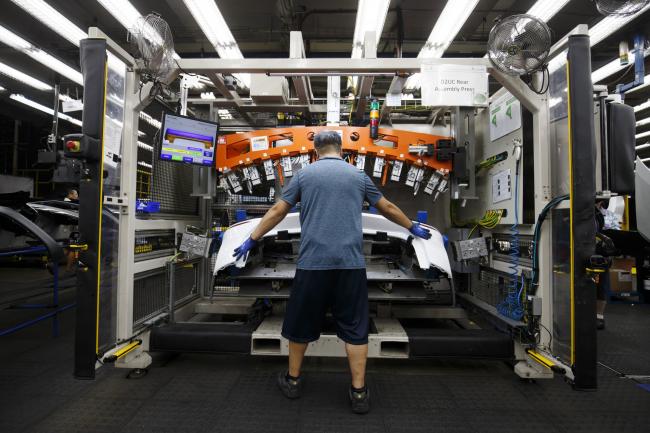(Bloomberg) -- The battle over potential auto tariffs is one of the final core disputes between the U.S. and Canada as Nafta talks head down to the wire, according to people familiar with the situation.
Canadian negotiators are seeking assurances the country will be exempt, or given some sort of preferential treatment, in Section 232 tariff investigations, three officials familiar with talks said. One of the officials said the 232 issue is emerging as the biggest problem, while another said it’s among a handful of key issues. The people spoke on condition of anonymity because the discussions are private.
Section 232, a previously seldom-used provision of U.S. trade law, allows tariffs to be imposed on national security grounds. Exemptions were once held up as a carrot, or incentive for Canada to strike a deal. Now they’re being wielded more like a stick, signaling the U.S. may be pushing to reserve the right to impose auto tariffs on Canada even if a deal is reached to update the North American Free Trade Agreement.
The Trump administration has pushed the previously understood limits of Section 232 by broadening the definition of what it considers a security threat. It has already imposed steel and aluminum tariffs on Canada, the top source of imports for both metals. Canada retaliated with dollar-for-dollar tariffs on a range of products. Now the U.S. is considering similar restrictions on auto imports.
Ally or Risk?
U.S. Trade Representative Robert Lighthizer declined to comment to reporters Thursday, before Canadian Foreign Minister Chrystia Freeland arrived for another round of talks. A spokesperson for Lighthizer’s office didn’t immediately respond to a request for comment.
Canada, a close military ally and the top buyer of U.S. goods, has said the national security justification is “absurd.” However, the fear among Canadians is that they’d sign a new Nafta deal and see the Trump administration swiftly apply auto tariffs anyhow, devastating the economy, one of the officials said, adding there’s little value in a trade deal with that kind of uncertainty.
The 232 tariffs are among the remaining question marks of the bilateral deal the U.S. already struck with Mexico. The tariffs on Mexican steel and aluminum haven’t yet been lifted, despite the parties reaching a deal last month.
Another key issue is dispute settlement panels currently contained under Chapter 19. The U.S. wants to delete the chapter, while Canada has publicly said some type of similar panel is required for the country to back a deal.
Time is running out for Canada and the U.S. to reach agreement by the latest deadline American officials are aiming for. Under U.S. trade law, in order to sign a deal before Mexico’s incoming president takes office, text of the agreement needs to be published by Sept. 30, meaning a high-level agreement is needed imminently to allow time for it to be converted to legal text.
Trump has threatened to try to advance a U.S.-Mexico deal -- without Canada -- if agreement can’t be reached with the Canadians, though Congress may block him from doing so. Trump has also threatened auto tariffs if a deal can’t be reached, saying it would mean the ruination of the Canadian economy.
